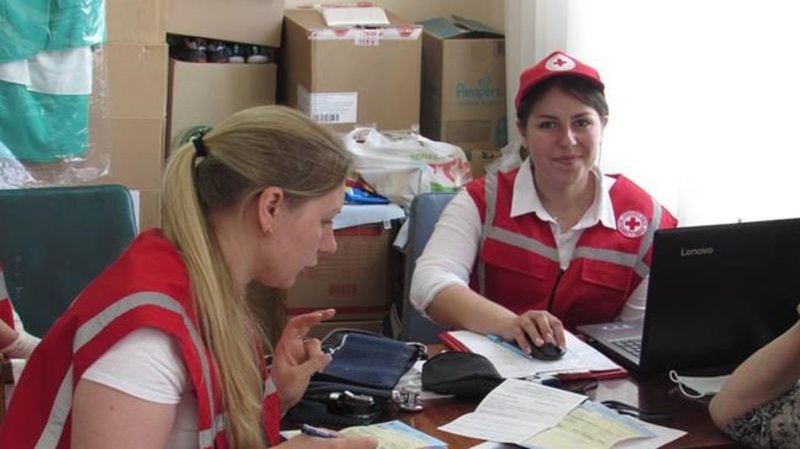
‘A bit of help’: Canadian Red Cross funding medical clinics for displaced in Ukraine
KORSUN-SHEVCHENKIVSKYI — Medical intern Alina Manko sits at a desk and speaks with a woman as other patients wait for their turn.
Wearing a red vest and cap, Manko is part of a group staffing mobile units funded by the Canadian Red Cross that provide health care in central Ukraine for thousands of citizens displaced by the war with Russia.
“It is part of my job to help people if they are broken,” Manko says in halting English from the makeshift clinic inside a community centre in Korsun-Shevchenkivskyi, two hours south of Kyiv.
The clinic moves every few days to another community and sets up in different buildings.


